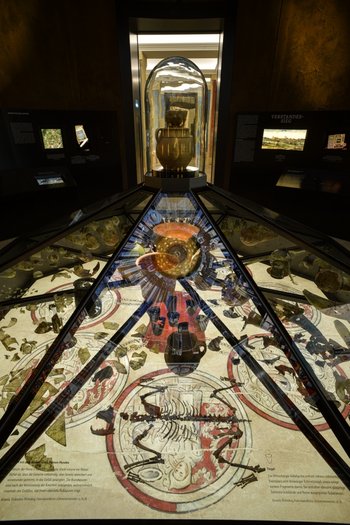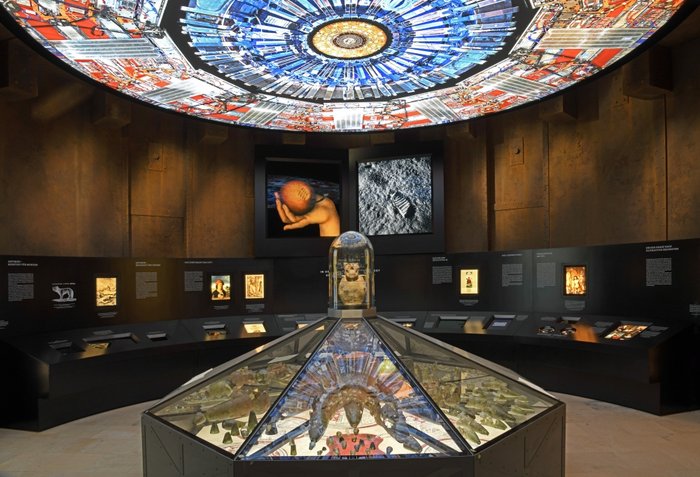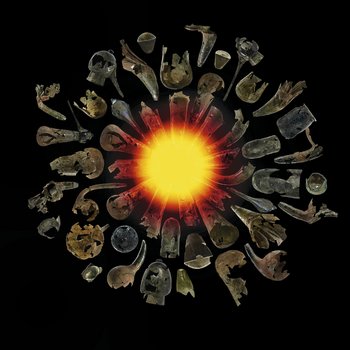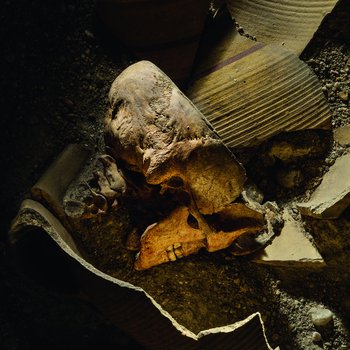Triumph of Intellect
The Early Modern Period
16th to 17th century
On the threshold of the Middle Ages to the early modern period, curiosity about the workings of the world slowly overcame religious prohibitions on thought. The interaction of alchemy and philosophy laid the foundations for the development of sciences such as chemistry, physics, anatomy, and pharmacy.
Alchemy and the natural sciences are united in the search for the foundations of existence. For alchemy, the secret of the world lay in the philosopher's stone, the attempt to understand the workings of nature as a universal plan of creation. Nature was not to be overcome; the alchemist was only to perfect what nature had left unfinished.
In the 16th century, Wittenberg, with its university founded in 1502, was an intellectual centre. In 2012, traces of early anatomy studies and the remains of an alchemist's workshop were discovered in the former Franciscan monastery. Among other things, the exhibition section focuses on this important find, which sheds light on early striving for knowledge.



